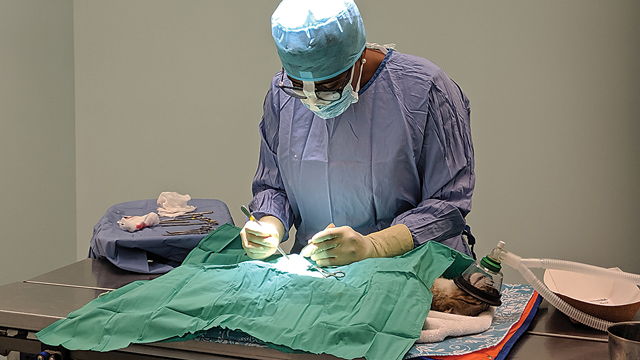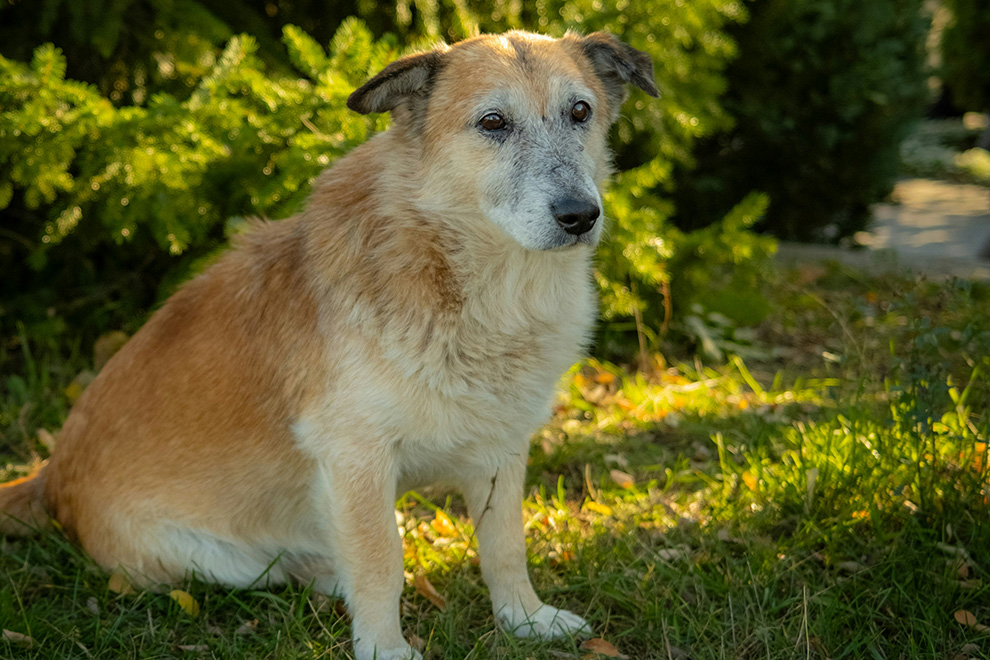Twenty years ago, the Richmond SPCA transitioned to a no-kill operating model. That shift marked not only a change in philosophy, but also a change in the types of programs that were offered – spaying and neutering being chief among them. When the nonprofit completed its move in the fall of 2002 to its Hermitage Road humane center, the new facility included a clinic where pets would be spayed and neutered before they were placed in adoptive homes.
While Virginia state code allows pet agencies to adopt out pets who have not been spayed or neutered as long as there is a sterilization agreement requiring the new guardian to have the pet spayed or neutered within thirty days, this leaves the opportunity for the pet to breed and further contribute to the homeless animal population. Pre-adoption spay and neuter has become a best practice in the animal welfare field. New guardians can focus on bonding with their pets, rather than spending time scheduling surgery, and the organization can redirect the resources they would have spent to ensure compliance toward helping other animals in need.
Spaying and Neutering Is Good for Pets
For dogs and cats, the benefits go beyond simply preventing births. There are behavioral and medical benefits to having animals sterilized.
Intact female dogs and cats experience regular heat cycles that can be messy and frustrating. The heat cycle occurs for dogs about once every six to eight months, while cats are more seasonal, repeating about once every three weeks. During heat, a dog or cat is shedding pheromones to attract a mate, and she will mark objects with urine to signal her status. Dogs have bloody vaginal discharge for around ten days of the cycle. Cats’ symptoms are mostly behavioral: constant rubbing against people or objects, demanding attention, and loud vocalizations.
Each heat cycle a dog or cat experiences increases the chance of mammary cancer and pyometra, a life-threatening uterine infection. Spaying – surgical removal of the uterus and ovaries – when performed before the first heat, gives the greatest reduction in mammary cancer risk, though even pets that have already developed mammary tumors benefit from spaying to slow tumor growth. Spayed pets have zero risk of contracting pyometra.
Intact male dogs and cats are driven by testosterone and the call of females in heat. Fighting, roaming, inappropriate mounting, and urine marking are all hormone-driven behaviors that are reduced or eliminated by neutering male pets. For male dogs, neutering reduces prostate inflammation and infection. The risk of feline immunodeficiency virus (FIV) is greatly diminished in neutered cats because they are less prone to roaming and fighting and more easily confined indoors, which adds years to their lives.
It’s Good for the Community, Too
“Spaying and neutering is the cornerstone of eliminating pet homelessness, reducing shelter intakes, and keeping families together with their furry loved ones, which is why I do what I do,” says Brit’nee Haskins, DVM, associate veterinarian at the Richmond SPCA’s Susan M. Markel Veterinary Hospital.
Richmond SPCA veterinarians have performed nearly 132,000 spay and neuter surgeries during the last twenty years. These services are set to expand further with the purchase of a satellite clinic, A.L. Shilling Spay & Neuter, which has provided pre-adoption sterilization for about a dozen public and private sheltering and rescue organizations since 2018.
This spring, the facility at 7088 Mechanicsville Turnpike reopened as the Richmond SPCA Smoky’s Spay & Neuter Clinic to provide sterilization services for animals in the care of municipal shelters, private rescue groups, and community cats brought in by caregivers who are performing trap, neuter, and return services. Smoky’s Spay and Neuter Clinic operates four days a week, Monday through Thursday, and performs up to one hundred surgeries weekly.
Widespread pre-adoption spay and neuter programs mean that local nonprofit groups don’t need to expend limited resources to assure compliance with Virginia law. This is great for adopters as well, who don’t have the hassle of scheduling and keeping appointments. Acquire your next companion from one of the many wonderful sheltering and rescue organizations in our community, and your pet will be sterilized before you bring it home. You can focus instead on building a lifelong bond that incorporates the new pet as a lasting member of the family.





